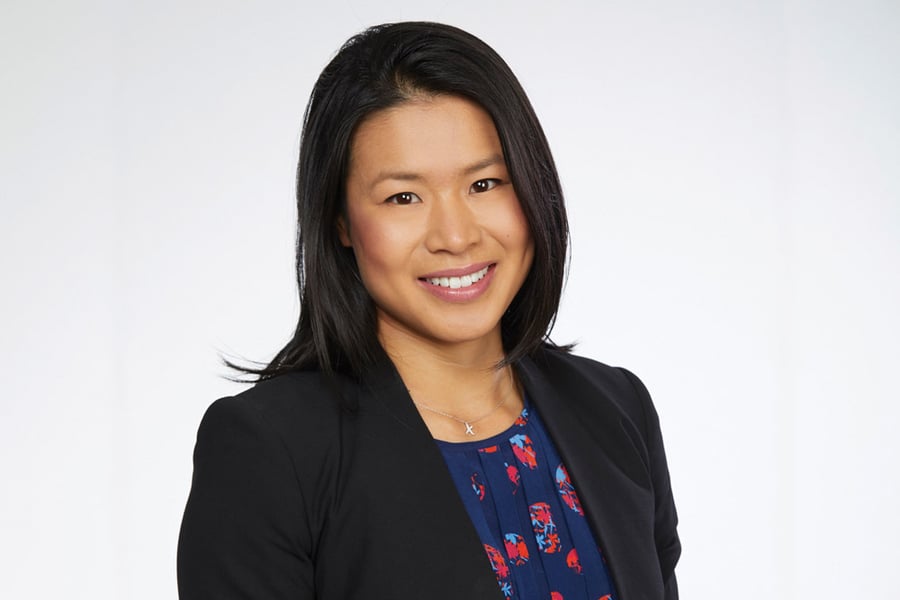Top 100 broker Natasha Choi has proved herself a shining example of what young females can achieve in a largely male-dominated industry

ALIC’s Natasha Choi has excelled in just five years as a broker, making the Top 100 of 2019 alongside principals Mark Davis and Kevin Agent.
Leaving the world of accounting in order to make a more meaningful impact in people’s lives, Choi says it’s the way you respond when times are tough that really counts.
MPA spoke with the Melbourne broker about the challenge of building credibility and how building strong relationships with lenders can make a huge difference in the lives of borrowers.
A meaningful impact
Choi started out as a broker in 2015 after spending 18 months in training at Top 10 brokerage ALIC. Coming from a career in corporate accounting, she made the switch after being attracted to what the role could offer.
“At the end of the day you really change people’s lives.”
“We really get to help shape their future and to me it’s a lot more meaningful.”
As a young broker, the biggest challenge she faced was establishing credibility and positioning herself in the market as an advisor.
“Building credibility was important because you would have plenty of people older and younger than you, sitting in front of you and you’ve obviously got to sell why your advice is of value to them.”
“It could have been more in my head more than anything else, but certainly that was the biggest challenge.”
A big part of this was the fact that many of ALIC’s clientele are wealth-builders and have established knowledge around investing and the world of finance.
“For people who are in the business world and in economics, finance, accounting, it’s just being able to show that you can add value to them in a light that they haven’t seen before.”
She did this by building up her knowledge and upskilling as well as being highly responsive.
“There are a lot of good salespeople that don’t know the technical side but they can sell well. But, when you start out you’ve got time to build your knowledge and upskill yourself and I think ultimately that’s probably what gets you across the line.”
The benefits of good lender relationships
Choi has helped a range of different clients during her time as a broker, but one scenario that stands out is an ex-pat that was threatened by a changing lender policy.
“This was during the very beginning of the Royal Commission where there was a lot of fraudulent activities in terms of proving income.”
“The banks were a bit touch and go in regards to policy, not just in terms of accepting foreign income source but also in terms of LVR because they were all dropping that at the time.”
The client was purchasing an investment property with a longer-term plan to move into it further down the track.
“We had a pre-approval with a lender who then subsequently changed their policy and required another 10% deposit.”
The lender also wasn’t going to accept foreign income moving forward; putting the client in a difficult position.
“I identified this problem early and workshopped with the existing lender I had preapproval with to make sure that they would still honour the preapproval they had provided a couple of months earlier.”
This was not an easy task; the lender having timeframes and cut-offs it wanted to honour.
“By the same token, I had workshopped scenarios with alternate lenders who were still willing to accept that particular foreign currency.”
Ultimately, she was able to get finance through the existing lender thanks to the relationship she had built up with them over time.
“I often believe that it’s not what you do when things are going well, but it’s more how you perform and interact, communicate, reassure and provide clients with confidence when things aren’t going well.”
It’s about relationships and knowledge
To young females looking to join the industry, Choi says it is important to know your stuff, but you shouldn’t hesitate to tell clients if you’re not sure about something.
“Take the time to workshop the scenario with lenders and go back to the client.”
“It’s a very sensitive environment at the moment, and what you think might be credit policy may have changed in the time since you last submitted a transaction.”
“Clients don’t expect you to know everything and I think that’s something that I learned very early on.”
“It’s about the connections that you have, the relationships and your knowledge that can ultimately allow you to help them find a solution for their goal.”



